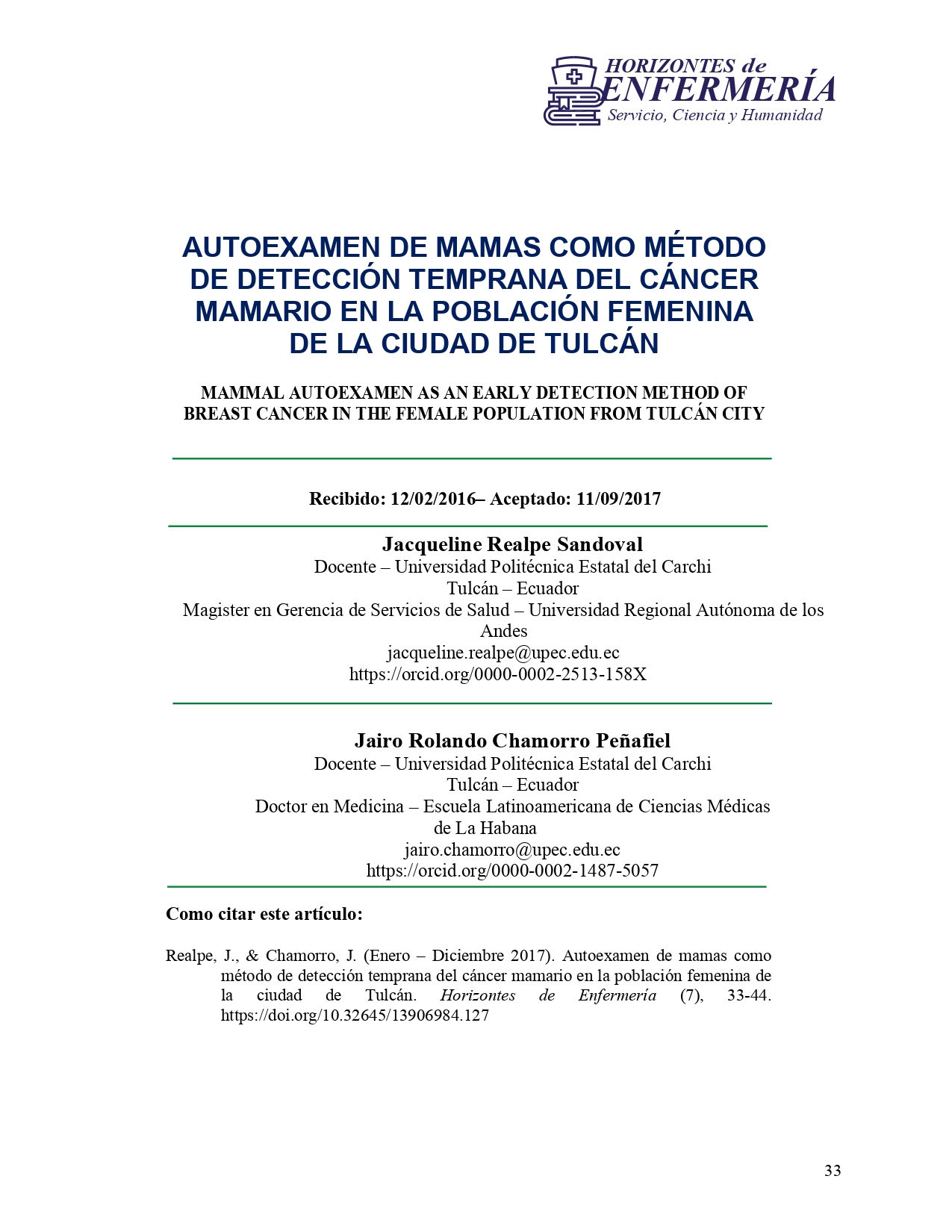Mammal autoexamen as an early detection method of breast cancer in the female population from Tulcan city
DOI:
https://doi.org/10.32645/13906984.127Keywords:
Breast self-examination, breast cancer, female populationAbstract
Th e present study was carried out in the south from Tulcan city, Carchi province. Th e objective was to determine the knowledge and practices of breast self-examination for the early detection of breast cancer in the female population aged 20-64 years old. Research was carried out in this sector since according to statistical data there were 3 deaths due to breast cancer in 2016 in the Tulcán urban parish, so it is among the top 10 causes of mortality in the female population in the sector. A descriptive, qualitative- quantitative and fi eld study was carried out using the survey technique in order to identify the knowledge and practices that the female population has about breast self-examination. When the research was carried out, 24% of the female population did not know what the breast self-examination was, evidencing the lack of knowledge about the importance of this technique. Of the total population who claimed to know about the subject, she performed it erroneously, since 49% did not take the menstrual cycle into account, 35% did not explore the armpit area, 29% said they did not use a mirror for exploration of breasts; while 57% do not practice it for fear of discovering alterations that aff ect their health. In conclusion, knowing and correctly practicing breast self-examination is paramount since it contributes to the prevention or timely detection of abnormalities that may lead to the risk of developing breast cancer.

Downloads
Published
Issue
Section
License
Copyright (c) 2017 Jacqueline Realpe Sandoval, Jairo Rolando Chamorro Peñafiel

This work is licensed under a Creative Commons Attribution-NonCommercial-ShareAlike 4.0 International License.
El autor mantiene los derechos morales e intelectuales de su obra, autorizando a la editoruial de la revista revista Horizontes de Enfermería ladifusión y la divulgación de su contenido con fines estrictamente académicos y de investigación, sin fines de lucro.







